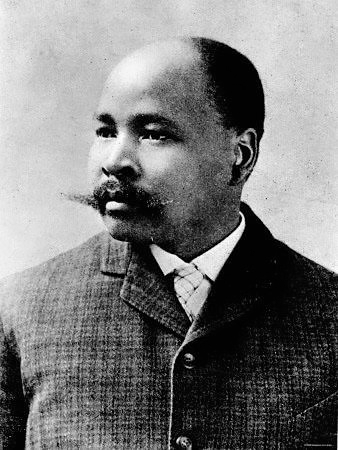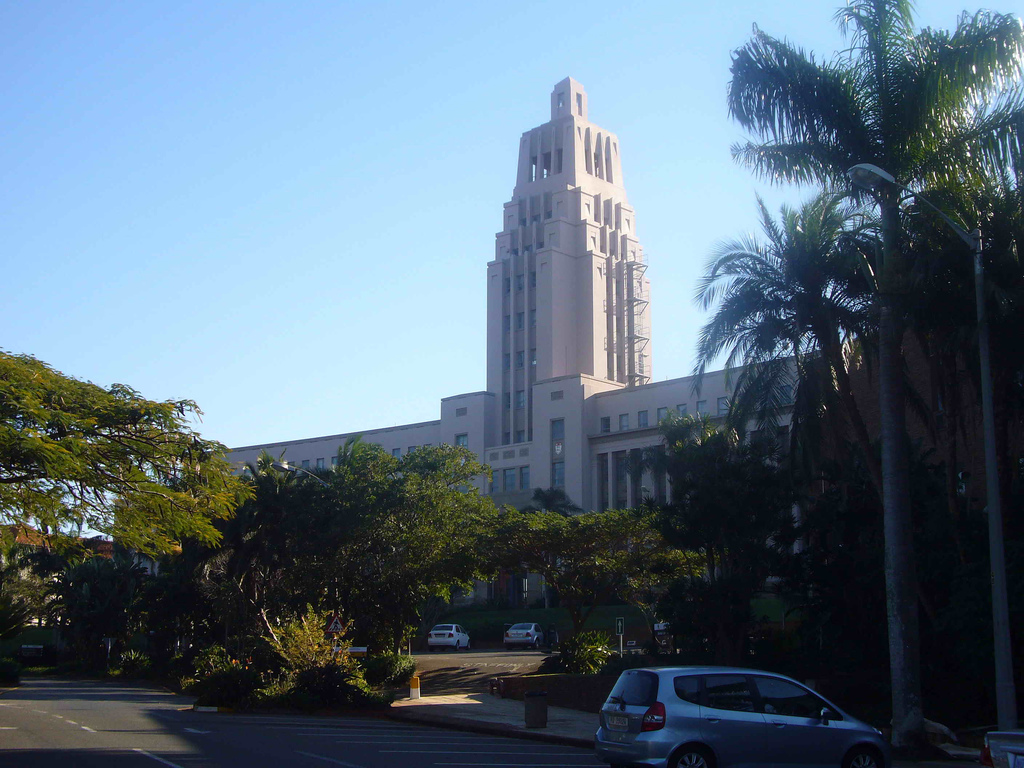|
Omar Badsha
Omar Badsha (born 27 June 1945) is a South African documentary photographer, artist, political and trade union activist and an historian. He is a self-taught artist. He has exhibited his art in South Africa and internationally. In 2015 he won the Arts & Culture Trust (ACT) Lifetime Achievement Award for Visual Art. In 2017 he received an honorary doctorate Doctor of Philosophy (DPhil), for his groundbreaking work in the field of documentary photography in South Africa. He was also awarded a Presidential honor The Order of Ikhamanga in Silver for "His commitment to the preservation of our country’s history through ground-breaking and well-balanced research, and collection of profiles and events of the struggle for liberation" Early life Badsha was born in Durban, KwaZulu-Natal on 27 June 1945. He is a third-generation South African of Indian origin and comes from a Gujarati Muslim Sunni Bohra family. His father Ebrahim Badsha was one of the South African pioneer black artists and ... [...More Info...] [...Related Items...] OR: [Wikipedia] [Google] [Baidu] |
Documentary Photography
Documentary photography usually refers to a popular form of photography used to chronicle events or environments both significant and relevant to history and historical events as well as everyday life. It is typically undertaken as professional photojournalism, or real life reportage, but it may also be an amateur, artistic, or academic pursuit. History The term ''document'' applied to photography antedates the mode or genre itself. Photographs meant to accurately describe otherwise unknown, hidden, forbidden, or difficult-to-access places or circumstances date to the earliest daguerreotype and calotype "surveys" of the ruins of the Near East, Egypt, and the American wilderness areas. Nineteenth-century archaeologist John Beasly Greene, for example, traveled to Nubia in the early 1850s to photograph the major ruins of the region; One early documentation project was the French Missions Heliographiques organized by the official ''Commission des Monuments historiques'' to develo ... [...More Info...] [...Related Items...] OR: [Wikipedia] [Google] [Baidu] |
University Of Cape Town
The University of Cape Town (UCT) ( af, Universiteit van Kaapstad, xh, Yunibesithi ya yaseKapa) is a public research university in Cape Town, South Africa. Established in 1829 as the South African College, it was granted full university status in 1918, making it the oldest university in South Africa and the oldest university in Sub-Saharan Africa in continuous operation. UCT is organised in 57 departments across six faculties offering bachelor's ( NQF 7) to doctoral degrees ( NQF 10) solely in the English language. Home to 30 000 students, it encompasses six campuses in the Capetonian suburbs of Rondebosch, Hiddingh, Observatory, Mowbray, and the Waterfront. Although UCT was founded by a private act of Parliament in 1918, the Statute of the University of Cape Town (issued in 2002 in terms of the Higher Education Act) sets out its structure and roles and places the Chancellor - currently, Dr Precious Moloi Motsepe - as the ceremonial figurehead and invests real leadership ... [...More Info...] [...Related Items...] OR: [Wikipedia] [Google] [Baidu] |
South African Activists
South is one of the cardinal directions or compass points. The direction is the opposite of north and is perpendicular to both east and west. Etymology The word ''south'' comes from Old English ''sūþ'', from earlier Proto-Germanic ''*sunþaz'' ("south"), possibly related to the same Proto-Indo-European root that the word ''sun'' derived from. Some languages describe south in the same way, from the fact that it is the direction of the sun at noon (in the Northern Hemisphere), like Latin meridies 'noon, south' (from medius 'middle' + dies 'day', cf English meridional), while others describe south as the right-hand side of the rising sun, like Biblical Hebrew תֵּימָן teiman 'south' from יָמִין yamin 'right', Aramaic תַּימנַא taymna from יָמִין yamin 'right' and Syriac ܬܰܝܡܢܳܐ taymna from ܝܰܡܝܺܢܳܐ yamina (hence the name of Yemen, the land to the south/right of the Levant). Navigation By convention, the ''bottom or down-facing side'' of ... [...More Info...] [...Related Items...] OR: [Wikipedia] [Google] [Baidu] |
South African Photographers
South is one of the cardinal directions or compass points. The direction is the opposite of north and is perpendicular to both east and west. Etymology The word ''south'' comes from Old English ''sūþ'', from earlier Proto-Germanic ''*sunþaz'' ("south"), possibly related to the same Proto-Indo-European root that the word ''sun'' derived from. Some languages describe south in the same way, from the fact that it is the direction of the sun at noon (in the Northern Hemisphere), like Latin meridies 'noon, south' (from medius 'middle' + dies 'day', cf English meridional), while others describe south as the right-hand side of the rising sun, like Biblical Hebrew תֵּימָן teiman 'south' from יָמִין yamin 'right', Aramaic תַּימנַא taymna from יָמִין yamin 'right' and Syriac ܬܰܝܡܢܳܐ taymna from ܝܰܡܝܺܢܳܐ yamina (hence the name of Yemen, the land to the south/right of the Levant). Navigation By convention, the ''bottom or down-facing side'' of ... [...More Info...] [...Related Items...] OR: [Wikipedia] [Google] [Baidu] |
Natal Indian Congress Politicians
NATAL or Natal may refer to: Places * Natal, Rio Grande do Norte, a city in Brazil * Natal, South Africa (other), a region in South Africa ** Natalia Republic, a former country (1839–1843) ** Colony of Natal, a former British colony (1843–1910) ** Natal (province), a former province (1910–1994) ** KwaZulu-Natal, a province (since 1994) * Mandailing Natal Regency, a regency in Indonesia ** Natal, North Sumatra, a town in the above regency * Natal, Iran, a village in Mazandaran Province, Iran * Natal, British Columbia, a coal-mining community in the East Kootenay region of Canada Biology * Of or relating to birth ** Childbirth * Natal banana frog, a species of frog (''Afrixalus spinifrons'') * Natal dwarf puddle frog, a species of frog (''Phrynobatrachus natalensis'') * Natal ghost frog, a species of frog (''Heleophryne natalensis'') * Natal sand frog, a species of frog (''Tomopterna natalensis'') Military * Ingobamakhosi Carbineers, an infantry regiment of the Sout ... [...More Info...] [...Related Items...] OR: [Wikipedia] [Google] [Baidu] |
Living People
Related categories * :Year of birth missing (living people) / :Year of birth unknown * :Date of birth missing (living people) / :Date of birth unknown * :Place of birth missing (living people) / :Place of birth unknown * :Year of death missing / :Year of death unknown * :Date of death missing / :Date of death unknown * :Place of death missing / :Place of death unknown * :Missing middle or first names See also * :Dead people * :Template:L, which generates this category or death years, and birth year and sort keys. : {{DEFAULTSORT:Living people 21st-century people People by status ... [...More Info...] [...Related Items...] OR: [Wikipedia] [Google] [Baidu] |
1945 Births
1945 marked the end of World War II and the fall of Nazi Germany and the Empire of Japan. It is also the only year in which Nuclear weapon, nuclear weapons Atomic bombings of Hiroshima and Nagasaki, have been used in combat. Events Below, the events of World War II have the "WWII" prefix. January * January 1 – WWII: ** Nazi Germany, Germany begins Operation Bodenplatte, an attempt by the ''Luftwaffe'' to cripple Allies of World War II, Allied air forces in the Low Countries. ** Chenogne massacre: German prisoners are allegedly killed by American forces near the village of Chenogne, Belgium. * January 6 – WWII: A German offensive recaptures Esztergom, Kingdom of Hungary (1920–1946), Hungary from the Russians. * January 12 – WWII: The Soviet Union begins the Vistula–Oder Offensive in Eastern Europe, against the German Army (Wehrmacht), German Army. * January 13 – WWII: The Soviet Union begins the East Prussian Offensive, to eliminate German forces in East Pruss ... [...More Info...] [...Related Items...] OR: [Wikipedia] [Google] [Baidu] |
Informal Settlement
Informal housing or informal settlement can include any form of housing, shelter, or settlement (or lack thereof) which is illegal, falls outside of government control or regulation, or is not afforded protection by the state. As such, the informal housing industry is part of the informal sector. To have informal housing status is to exist in "a state of deregulation, one where the ownership, use, and purpose of land cannot be fixed and mapped according to any prescribed set of regulations or the law". While there is no global unified law of property-ownership, typically, the informal occupant or community will lack security of tenure and, with this, ready or reliable access to civic amenities (potable water, electricity and gas supply, road creation and maintenance, emergency services, sanitation and waste collection). Due to the informal nature of occupancy, the state will typically be unable to extract rent or land taxes. The term "informal housing" is useful in capturing th ... [...More Info...] [...Related Items...] OR: [Wikipedia] [Google] [Baidu] |
Inanda, KwaZulu-Natal
Inanda or eNanda (isiZulu: ''pleasant place'', also possibly, ''level-topped hill'') is a township in KwaZulu-Natal, South Africa that is situated 30 km north-west of the Durban CBD; it forms part of eThekwini Metropolitan Municipality, eThekwini, the Greater Durban Metropolitan Municipality. Populated primarily by Zulu language, Zulu-speaking Black Africans, Inanda Township is the home of John Langalibalele Dube, first president of the African National Congress (ANC), as a residence/base of operations of Mahatma Gandhi, and as birthplace of the syncretic Nazareth Baptist Church History Brief Description Inanda Township is one of the original townships in the EThekwini Metropolitan Municipality. In the 1600s Inanda Township was nothing more than an oasis for the few local Indigenous farmers. Until in the late 1700s when white settlers arrived in the area. Then in the 1800s, Inanda Township was used as a 'Reserve' for Black & uneducated people. In 1936, Indian farmers joined l ... [...More Info...] [...Related Items...] OR: [Wikipedia] [Google] [Baidu] |
Apartheid South Africa
Apartheid (, especially South African English: , ; , "aparthood") was a system of institutionalised racial segregation that existed in South Africa and South West Africa (now Namibia) from 1948 to the early 1990s. Apartheid was characterised by an authoritarian political culture based on '' baasskap'' (boss-hood or boss-ship), which ensured that South Africa was dominated politically, socially, and economically by the nation's minority white population. According to this system of social stratification, white citizens had the highest status, followed by Indians and Coloureds, then black Africans. The economic legacy and social effects of apartheid continue to the present day. Broadly speaking, apartheid was delineated into ''petty apartheid'', which entailed the segregation of public facilities and social events, and ''grand apartheid'', which dictated housing and employment opportunities by race. The first apartheid law was the Prohibition of Mixed Marriages ... [...More Info...] [...Related Items...] OR: [Wikipedia] [Google] [Baidu] |
University Of Natal
The University of Natal was a university in the former South African province Natal which later became KwaZulu-Natal. The University of Natal no longer exists as a distinct legal entity, as it was incorporated into the University of KwaZulu-Natal on 1 January 2004. It was founded in 1910 as the Natal University College in Pietermaritzburg and expanded to include a campus in Durban in 1931. In 1947, the university opened a medical school for non-white students in Durban. The Pietermaritzburg campus was known for its agricultural engineering programmes, hence the nickname "the farmers" whilst the Durban campus was known as "the engineers," as it concentrated on other engineering programmes. The Council of the University of Natal voted on 31 May 2002 to offer the post of Vice-Chancellor and University Principal to world-renowned medical scientist and former Medical Research Council President - Professor Malegapuru Makgoba who assumed office on the 1 September 2002. He was entrus ... [...More Info...] [...Related Items...] OR: [Wikipedia] [Google] [Baidu] |







